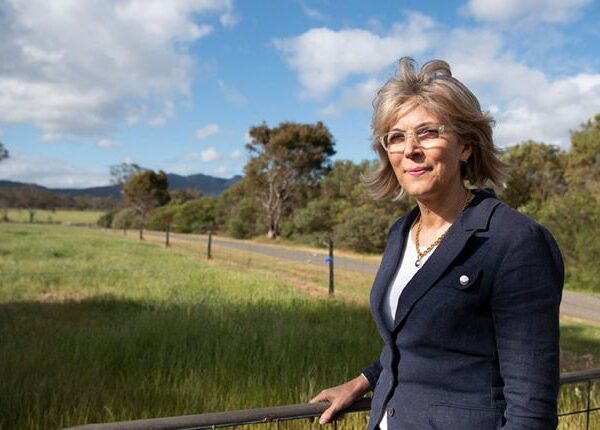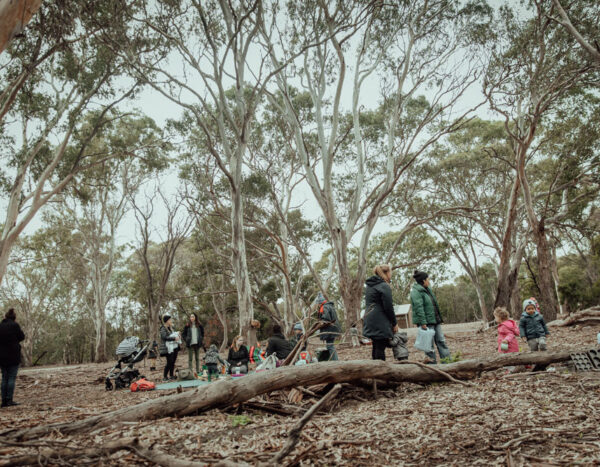Honorary Associate Professor Marianne Knaus speaks on the importance of STEM

Honorary Associate Professor Marianne Knaus from Edith Cowan University and the University of New England has shared her perspective on how STEM explorations lay the foundation for lifelong learning, plus activity ideas for learners of all ages.
Dr Knaus’ comments were shared with the New South Wales Department of Education. Access the original coverage here.
“As children play and explore, there is a natural crossover between science, technology, engineering and mathematics (STEM),” she began.
“Children demonstrate a natural curiosity to the world around them by experimenting and investigating across a range of learning areas. Learning is not compartmentalised into curriculum areas but woven into discovery and investigation.”
What are the core aspects of STEM learning?
- Science is learning about the natural world through observation, listening, and recording. It includes reasoning, classifying, experimenting, hypothesising, making predictions and wondering.
- Technology involves designing, planning and the making of things to support us in work and our daily lives. It includes all human-made objects, non-digital and digital. It is about being inventive, identifying problems and creating.
- Engineering is solving problems, using a variety of materials, creating and building things that work. It involves planning, designing and working collaboratively.
- Math is about problem solving, reasoning, looking for pattern and structure, and understanding measurement, shape and quantity.
Imagining children in the block corner gives an ideal demonstration of how STEM learning plays out.
In the block corner children are investigating mathematical concepts such as length, shape, measurement, number, estimation, symmetry, balance and problem solving.
They are using science to test assumptions and engage in physics, while also using technology and engineering concepts when planning, designing, creating and constructing.
The relevance of STEM in early childhood
“Many of the STEM areas are interrelated,” Dr Knaus explained.
STEM experiences that are connected to children’s everyday lives increase motivation and engagement, she continued.
“Children are full of wonder, interest and curiosity, and are constantly investigating and making sense of their world. It’s these foundational concepts of exploring, questioning and speculating that influence future educational experience and provide knowledge required for an innovative and creative world.”
Focusing on real world issues and problems, STEM explorations support children to develop skills that have become increasingly important for 21st century learning, including:
- critical thinking
- problem-solving skills
- innovation
- creativity
- information and media literacy
- communication
- collaboration
- self-directed learning.
“These skills are internationally acknowledged, with governments recognising STEM’s significance to generating jobs, boosting productivity and the economy. We look towards the next generation creating and inventing solutions to problems at an individual and community level.”
Building educator skills and confidence
Educators are fundamental to the success of STEM experiences and require good knowledge of each of the four areas (the S, the T, the E and the M), Dr Knaus continued.
“It’s important to have a shared vision regarding STEM within your service and identify areas for learning and improvement. Well-structured and collaborative professional learning opportunities about STEM can support educators to build their capabilities.”
Examples include:
- one-on-one coaching connected to the room they work in
- discussion groups to practice, analyse and reflect on instructional practice
- professional learning communities across a group of services
- ongoing support from leaders
- inviting guests with STEM expertise
- learning specifically tailored to the teachers’ changing needs according to their careers.
Another way to build skills and confidence is to visit other services already implementing STEM to observe their practices and listen to the different voices and experiences. First-hand experience can allow educators to see the learning connections among the STEM disciplines.
The educator’s role in STEM
Educators can enhance children’s STEM experiences by extending, scaffolding and planning for STEM learning, and being responsive to children’s intentionality and questions.
Dr Knaus suggests services consider the following ideas in their assessment and planning cycle.
Planning
- Include a STEM element in your planning template.
- Facilitate provision learning through rich experiences and environments.
- Add small changes to your program and build from there.
- Allocate some planning time to the thinking and incorporation of STEM ideas (STEM ideas for babies and toddlers, STEM ideas for 3 to 6-year-olds.)
Implementation
- Purposefully include dedicated time to STEM learning.
- Weave STEM into everyday situations in the indoor and outdoor environment.
- Use the relevant language throughout investigations to match the vocabulary to the appropriate concepts.
- Expand an inquiry into a short-term or long-term project.
- Practice sustained shared thinking, where educators co-construct learning by sharing knowledge and understanding to support and extend learning, rather than just transmitting information.
Observation, analysis and reflection
- Observe children’s learning and interests to plan from.
- Capitalise on children’s natural curiosity and inquiry for planning – the learning is meaningful, relevant and strengthened through intrinsic motivation.
- Be guided by questions or issues when planning STEM experiences.
- Tap into children’s families and neighbourhoods – they can be rich sources for investigations.
To access Dr Knaus’ original story please see here.
Popular

Practice
Provider
Quality
Research
Workforce
New activity booklet supports everyday conversations to keep children safe
2025-07-10 09:00:16
by Fiona Alston

Quality
Practice
Provider
Workforce
Reclaiming Joy: Why connection, curiosity and care still matter in early childhood education
2025-07-09 10:00:07
by Fiona Alston

Policy
Practice
Provider
Quality
Research
Workforce
Beyond the headlines: celebrating educators and the power of positive relationships in early learning
2025-07-07 10:00:24
by Fiona Alston













